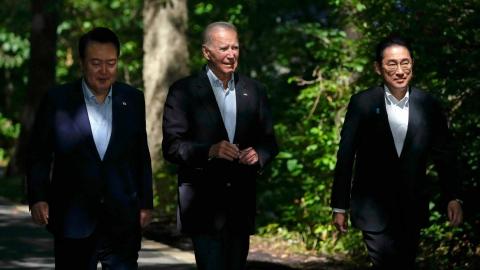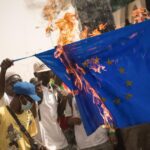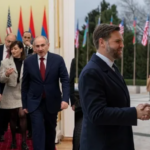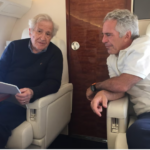Summary by Geopolist | Istanbul Center for Geopolitics
The study “Russia’s Invasion of Ukraine, Global Polarisation and Yoon’s Security Strategy” by Matteo Dian analyzes the geopolitical impacts of Russia’s invasion of Ukraine, particularly focusing on global polarization and South Korea’s response under President Yoon Suk-yeol.
Key points:
- Global Polarization: The invasion has intensified strategic and ideological divides between the West and an anti-Western bloc, including Russia and China. This has led to heightened US-China competition and significant geopolitical shifts in East Asia.
- Military Cooperation: Russia has strengthened military ties with North Korea, exacerbating security concerns in Northeast Asia. North Korea has provided substantial support to Russia, impacting the Korean Peninsula’s security dynamics.
- South Korea’s Security Strategy: Under President Yoon, South Korea has pursued an innovative foreign policy emphasizing a stronger alliance with the United States, developing a strategic triangle with the US and Japan, and engaging more actively with NATO and the EU, particularly in defense.
- US-ROK-Japan Strategic Triangle: Yoon’s administration aims to bolster trilateral cooperation to counter regional threats and enhance security.
- Indo-Pacific Strategy: Yoon has introduced a new Indo-Pacific strategy to increase South Korea’s influence and engagement in the region, aligning more closely with US strategic goals.
The document highlights the complex interplay of regional and global geopolitics, driven by Russia’s aggression and the evolving security strategies of key players like South Korea.
Author: Matteo Dian
Russia’s invasion of Ukraine and the escalation in the US-China rivalry have exacerbated the existing political and strategic polarisation in Northeast Asia and in the wider Indo-Pacific region. South Korea’s President Yoon Suk-yeol has reacted by promoting foreign and security strategies based on a peculiar, and in many respects innovative, interpretation of South Korea’s foreign policy tradition he has articulated in several axis: a stronger alliance with the United States, and the adoption of the concept of “Global Pivotal State”, the investment in the strategic triangle with the United States and Japan, a new Indo-Pacific Strategy as well as a more active engagement with NATO and EU member states, in particular in the defence sector.
Revised version of a paper presented at the conference on “New Convergences in EU-ROK Economic Security Relations”, organised in Rome on 30 January 2024 by the Istituto Affari Internazionali (IAI).
Source: Istituto Affari Internazionali







